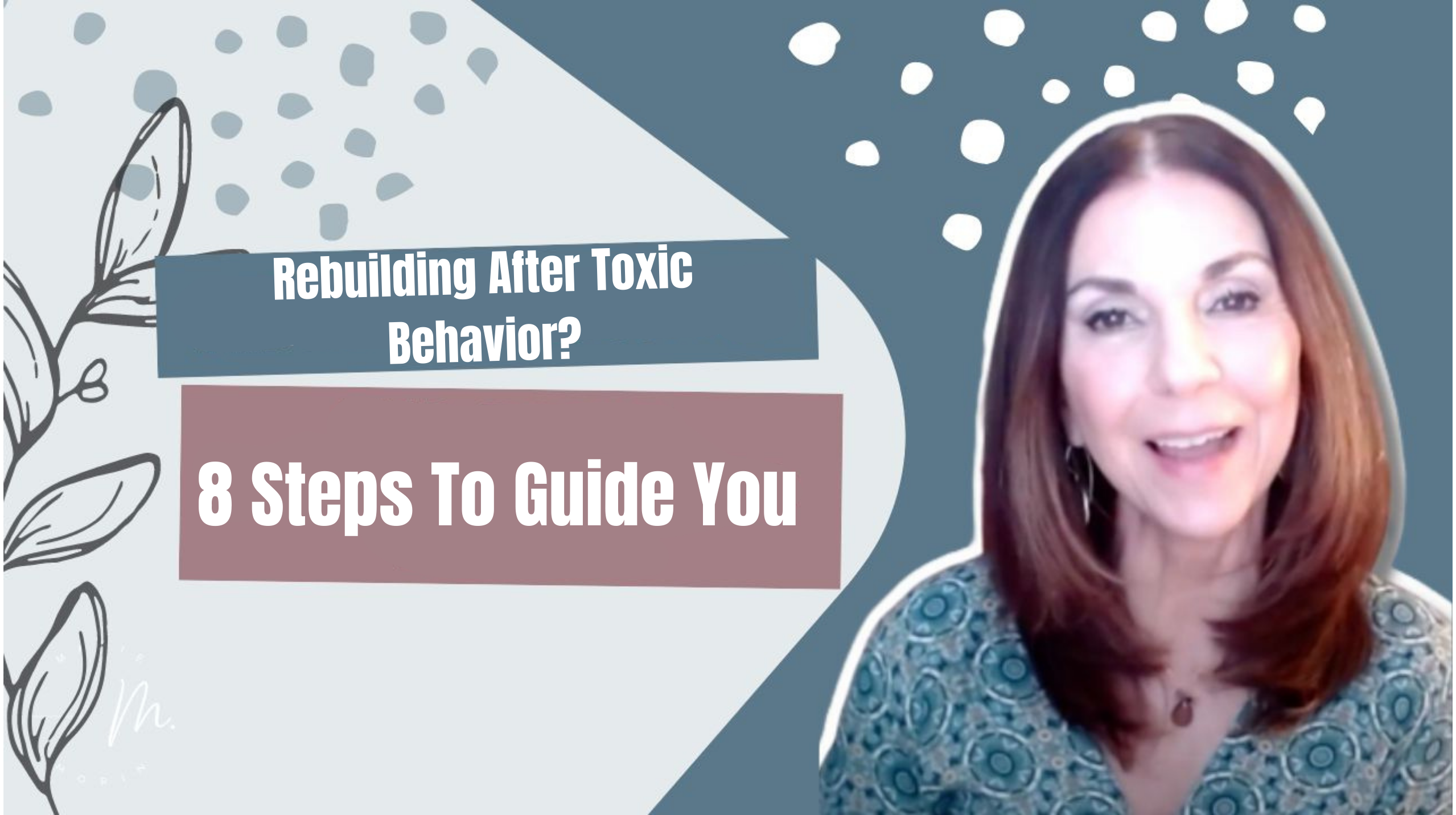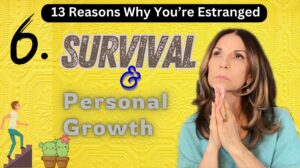Today’s topic is sensitive but important: rebuilding relationships with estranged adult children after toxic behavior. If you find yourself in this situation, you’re not alone. It takes courage to address the pain and hurt caused by past harmful behavior and work toward healing. Parents and adult children often experience profound distress, including anger, grief, and loss. Many adult children yearn for a different kind of relationship but feel compelled to cut off ties due to the overwhelming stress and emotional pain. This article will explore eight steps to guide you on this challenging yet rewarding path of rebuilding and reconnecting with your estranged adult children.
Step 1: Reflect and Take Responsibility
Begin by looking honestly at your past actions and acknowledging the pain you may have caused. Reflect on the behaviors, patterns, and choices contributing to the estrangement. Taking full responsibility for your behavior is vital without making excuses or minimizing the impact on your children. Understand the depth of their pain and validate their experiences.
Step 2: Seek Self-Improvement
Invest time in personal growth and self-improvement. Seek therapy, counseling, or support groups to delve into the root causes of your toxic behavior. Develop self-awareness and gain insight into the underlying issues that led to your actions. Read books, attend workshops, or engage in activities that promote emotional intelligence, empathy, and effective communication. The goal is to learn healthier coping mechanisms and establish new behavior patterns.
Step 3: Apologize Sincerely
Once you’ve done the necessary self-reflection and growth, it’s time to apologize sincerely to your adult children. Approach them with humility, expressing genuine remorse for the pain you caused. Be specific in acknowledging the incidents or patterns of toxic behavior that hurt them. Avoid justifying or minimizing your actions. Focus on understanding the impact of your behavior on their lives and validate their emotions. Let them know that you take full responsibility and are committed to change.
Step 4: Respect Boundaries
Understand that your adult children may have set boundaries for their emotional well-being. These boundaries include limited contact, avoiding topics, or gradual reintegration into their lives. Respect these boundaries and give them the space they need. Rebuilding trust takes time, patience, and consistency. Show them you are willing to honor their boundaries and committed to their emotional well-being.
Step 5: Demonstrate Change
Actions are crucial to rebuilding relationships. Show your children that you’ve changed through consistent positive behavior. Be accountable, respectful, and reliable. Follow through on your promises and commitments. Demonstrate your growth by actively applying healthier communication skills, addressing conflict constructively, and resolving issues without resorting to toxic behaviors. Let your actions consistently align with your words, giving them tangible evidence of your transformation.
Step 6: Rebuild Trust Gradually
Rebuilding trust takes time and patience. Understand that your children may need to see consistent positive changes before fully letting you back into their lives. Allow them to set the pace for reconnecting. Be understanding if they express skepticism or need reassurance. Show empathy and give them the space to process their emotions. Keep lines of communication open and let them know you are there for them whenever they are ready to engage. Avoid pressuring or rushing them into reconciliation. Building trust is a gradual process that requires ongoing effort and understanding from your side.
Step 7: Seek Professional Help
In some cases, seeking professional help can significantly assist in the process of rebuilding relationships. Family therapy or mediation can provide a safe and structured environment for open and honest communication. A neutral professional can help navigate difficult conversations, facilitate understanding, and guide all parties toward healing. They can provide valuable insights, tools, and strategies to address unresolved issues and promote healthy dynamics within the family.
Step 8: Practice Patience and Persistence
Rebuilding a relationship takes time, patience, and persistence. It’s essential to remember that healing is not linear, and setbacks may occur along the way. Be prepared for ups and downs, and maintain a long-term perspective. Continue demonstrating your commitment to change and being present in their lives, even if it sometimes feels challenging or disheartening. Patience and persistence can lead to the breakthroughs and reconnections you seek.
Keys To Consider
Change begins with self-awareness and a genuine desire to make amends. It’s crucial to respect your adult children’s boundaries, demonstrate consistent positive behavior, and rebuild trust gradually. Seeking professional help can also provide valuable guidance and support throughout the process.
It’s important to acknowledge that in the process of rebuilding relationships after toxic behavior, the ball is often in the adult child’s court. The power imbalance that existed during their upbringing may still linger, and they may hold the decision-making authority on whether to engage in the reconciliation process. This can be challenging for parents who are eager to mend the relationship but must respect their adult child’s boundaries and readiness for reconnecting. It’s crucial to understand that the adult child’s hesitance or reluctance does not diminish the importance of their experiences or their need for space and time to heal. Recognizing and respecting this imbalance in the relationship is essential for parents to demonstrate genuine remorse, patience, and ongoing support as they work towards rebuilding trust and fostering a healthier connection with their adult child.
Of equal importance is recognizing that parents who have been toxic in the past are not subject to toxicity in the present from their adult children. Parents make mistakes and are allowed to “grow as we go.” That said, you do not have to tolerate toxicity or abuse from your adult children just because you made mistakes in the past. Learning to set boundaries for yourself is also crucial for your healing process.
Conclusion
Rebuilding relationships takes time, and setbacks may occur. Be patient with yourself and your adult children, and never give up on the possibility of healing and reconciliation. With dedication, empathy, and open communication, you can forge a stronger, healthier bond with your estranged adult children. This article explores eight steps to guide you on this challenging yet rewarding path of rebuilding and reconnecting with your estranged adult children.






